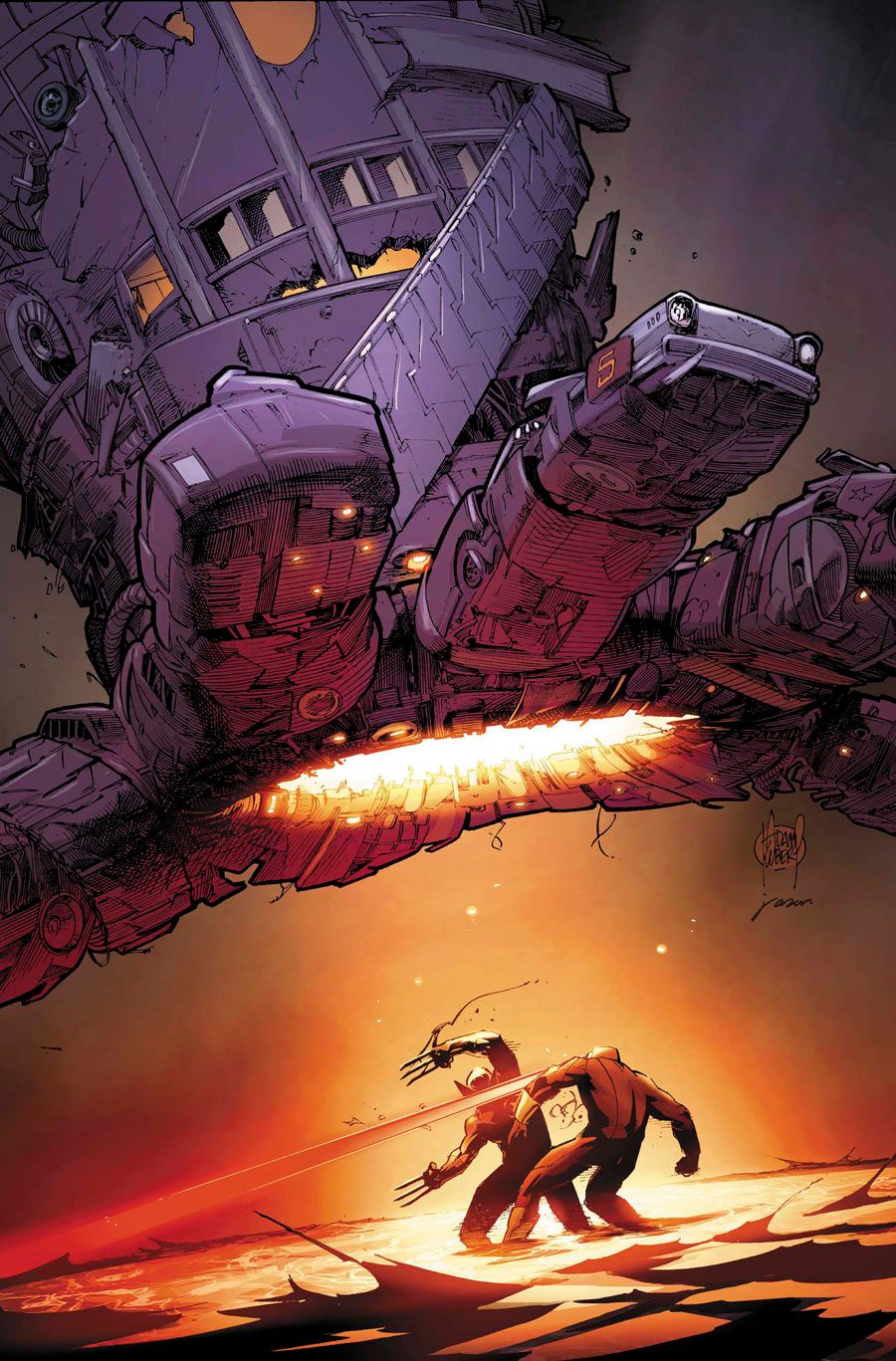"X-Men: Schism" was both about the end point and not. The entire premise of the story was the end point of Cyclops and Wolverine each leading two separate groups of X-Men. That was the selling point, so it's no surprise how this issue ends and that it leads into two dueling X-books: the relaunched "Uncanny X-Men" and the new "Wolverine and the X-Men." Since the conclusion of "Schism" was known before the first issue shipped, what was the point? What was left for this finale except to pull the trigger on the eponymous schism everyone knew was coming? Like so many things, it's not the 'what' that matters, it's the 'how.' That's where "X-Men: Schism" #5 stumbles.
Last issue, the rising conflict between Cyclops and Wolverine came to a head with a giant Sentinel wading towards Utopia, and Cyclops wanting to fight with the young mutants from "Generation Hope" at his side while Wolverine wanted to evacuate Utopia. The two eventually came to blows and that's where this issue begins. A big Cyclops/Wolverine fight has been a long time coming, and throwing the Sentinel into the mix makes the entire fight a big cartoon. It's excessive violence with few consequences and a threat established as major enough to possibly warrant evacuation relegated to a nuisance that periodically interrupts the main show.
Adam Kubert's rendition of that fight is entertaining and energetic. His line work conveys movement well and he varies up his page layouts enough to keep the reader off-balance while still driving the action forward. The page where the Sentinel attacks the two heroes with its fists is a wonderful little step-by-step, almost self-contained, page. From there, Kubert jumps from that steady view to quick cuts and jumps in action that require the reader to fill in the gaps. Visually, the first half of the book just sings along.
The second half, on the other hand, falls into the trap of not having anything terribly interesting to draw, anchored by the final conversation between Cyclops and Wolverine. It's not all talking heads, since their conversation is carried out over top of a montage of what happens next to all of the X-Men in the wake of the split between two of the most respected members of the group. Unfortunately, that final conversation never goes far enough to justify the split. Just as readers have known the ending of "Schism" was coming almost from day one, the finish seems like it was reversed engineered to reach that conclusion instead of that conclusion growing organically out of what preceded it. Without a truly compelling argument with two relatable and distinct perspectives, the finish is hollow to a degree, lacking in emotional punch.
Despite an entertaining action scene, "X-Men: Schism" #5 does little to dispel the idea that this was an 'event' book without any true purpose other than where it finishes. It was a means to an end. An interesting new status quo is put in place while also creating some new enemies for the groups, but that is a status quo known before the series even began, leaving this series as more a 'connect the dots' necessity than a story that stands on its own merits.

